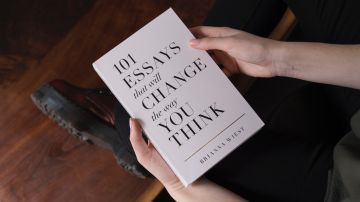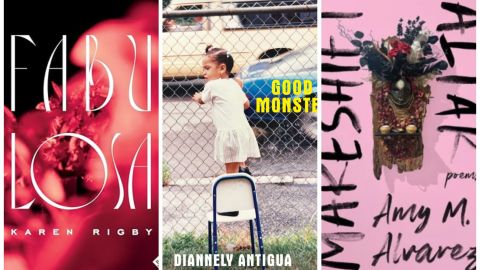Have Women Become Obsessed With Self-Help Books?
I recently did something I’ve never done before, I only asked my male friends for book recommendations

Photo: Unsplash/@thoughtcatalog
I recently did something I’ve never done before, I only asked my male friends for book recommendations. The inspiration came after a good male friend of mine had noticed that a large percentage of the books I had been reading, fell under the “self-help” category. I didn’t even realize it at first because the books on my shelf weren’t obvious like, “How to Get Over a Breakup” or Tony Robbins’ famous “Money: Master The Game.” These reads were more subtle, like Elizabeth Gilbert’s “Big Magic” or Don Miguel Ruiz’s “The Four Agreements.” I couldn’t help but ask myself: Had I become obsessed with self-help books?
If you’re a woman living in the United States, chances are you’ve become obsessed or at least exposed to the constantly growing, self-help culture that we live in. Go on Instagram and you’ll notice every other woman recommending a self-help book or posting an inspirational quote using the hashtag #selfcare or #selflove – myself included. We live in a society that’s fascinated with the idea of self-improvement and while that’s not necessarily a bad thing, it is interesting to note that this self-help obsession appeals a lot more to women than to men. Why is that?
I hit up my male friends and was impressed with some of the book recommendations I was given, from mystery novels, non-fiction memoirs – even biographies. I’ve purchased quite a few of them and can’t believe it’s been this long since I’ve read a good book that didn’t have some sort of motivational/ self-improvement angle. I really have been missing out. The reason why I specifically reached out to my male friends is because I noticed whenever I asked my girlfriends for book recommendations, not a single one of them mentioned a title that couldn’t easily fall under the category of self-help or new age philosophy.
Research shows that women are way more financially invested in self-improvement than men. In fact, in 2016 women were already making up 70 percent of the self-help market. But a 2015 study conducted by the University of Montreal, found that self-help books weren’t actually helping women, they were just giving them hope and in many cases, making them feel worse. The study found that self-help readers were more sensitive to stress and more likely to experience depressive symptoms than non self-help readers. And while self-help literature might be huge among women in the states, it isn’t actually a thing in happier countries.
According to the 2017 World Happiness Report, the happiest countries in the world are Norway, Denmark, Iceland, Switzerland, Finland, Netherlands, Canada, New Zealand, Australia, Sweden, Israel, Costa Rica, Austria, the United States, and Ireland – all in that order. But let’s pay attention to the top five, which consists of Norway, Denmark, Iceland, Switzerland, and Finland. Healthcare and education are free in these countries and gender equality is a lot more progressed. In fact, the politics in Norway place a strong emphasis on an equal society. See the connection here?
As a society, we women have been conditioned to believe that we constantly need “fixing,” when in actuality, society is the one that has it wrong. Countries like Norway prove that if we lived in a more feminist world where women had more political power in terms of our government institutions and policies, we’d be happier, but they also prove that we aren’t the problem.
Don’t get me wrong, I’m all about self-love and self-improvement. I’m not saying you need to throw away your Deepak Chopra books. A healthy self-esteem is crucial in trying to live a healthy and happy life. But there’s quite a distinction between self-improvement and constantly obsessing over another thing about yourself that you’re convinced “needs to be improved” in order for you to be happy. In order to be happy you don’t need to be a certain dress size, make a certain amount of money, have a perfect partner and relationship, or just have all your goals checked off by your 5-year plan deadline. So at what point do we put down the books and just love and embrace ourselves as we are?
After years of investing in myself emotionally, mentally, and financially – in trying to become the “ideal” version of myself, I decided to just be. And man do I feel a lot more content. That doesn’t mean I’m not going to grow and continue to thrive. It just means I’m going to be kinder and easier on myself about it. Living my life aiming to become more “exceptional” is no longer how I want to live.

















